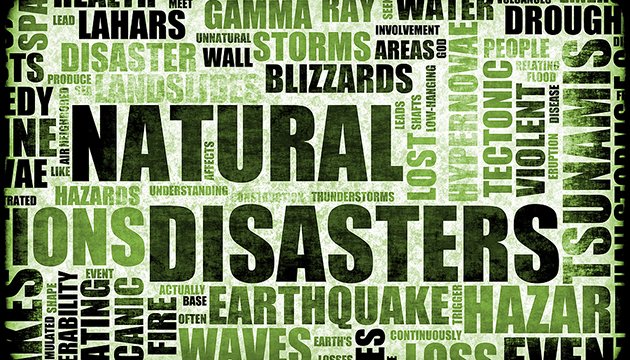
More Than a Bad Joke
It sounds like the set-up for a Seinfeld bit, but seriously—What’s the deal with insurance?
Insurance is a paradox. Whether you are self-employed, a contractor or consultant, an entrepreneur or a boss, you have to protect your business—your equipment, your property, even your reputation—from unforeseeable events that may never occur. Every month you cut a check to your provider for, well, what?
Your business is your baby—why risk it just to save a couple bucks each month?
For peace of mind, essentially. For protection against losses that you can’t predict or plan for.
Basically, you’re paying for a service that you hope you’ll never use.
What’s more, no one needs insurance until it’s too late. Until disaster strikes, insurance can feel like a burden: I’m paying this provider to do nothing! But a catastrophic event like a fire or a flood can cripple your small business in an instant. And when the smoke clears, you will need insurance to help you put the pieces back together.
Looking at the Statistics: Why Businesses Need Insurance
According to the Insurance Information Institute, 25% of small businesses that close down after a disaster—natural or man-made—never re-open. Nowadays, with the recession taking a bite out of bottom lines, small business owners are skimping on coverage.
But cutting coverage is a big risk for small businesses. Whereas large corporations have deep pools of cash to draw from when they need to repair or rebuild, solopreneurs need to rely on comprehensive insurance to find the resources they need to replace essential equipment and supplies in the wake of a catastrophe.
Your business is your baby—why risk it just to save a couple bucks each month? In order to ensure that your hard work isn’t undermined by some unpredictable event, you need to find adequate insurance to protect yourself and your investment.
Determining What Kinds of Coverage Your Business Needs
There is insurance coverage available for virtually every type of business (and every type of risk). Many insurers offer packages that bundle several plans or policies in order to make comprehensive insurance affordable for business owners.
The most common type of comprehensive insurance is a Business Owner’s Policy, or BOP. BOPs include property insurance, vehicle coverage, general liability protection, fire, flood, and crime insurance, and even insurance against loss of income.
Or what if you get sick? You simply must have adequate health insurance. (Check out EHealthInsurance to the right.)
If you run a home-based business, then you need to work with an insurance agent to determine whether or not liabilities associated with your business are already covered by your homeowners’ or renter’s insurance.
In most instances, home-based businesses need business property insurance in addition to standard homeowners’ insurance. Business property insurance protects equipment and assets used exclusively for business purposes, such as computers, copiers, filing equipment, and furniture.
When you’re shopping for business insurance, you will need to decide whether to buy so-called “cash value” coverage, or “cost of replacement” coverage for your assets. Cash value policies typically have lower premiums, but most home businesses cannot afford the lower settlement values that are often attached to cash value packages.
Your top priority: Be absolutely certain that your business will be able to continue to produce revenue after a catastrophic loss.
Solopreneurs working from home may need the same professional liability coverage as individuals working out of an office. Professional liability insurance is also known as errors and omissions insurance. It protects your business and your reputation from malpractice suits, errors, and claims of negligence.
Due to the rise in home-based businesses, several major insurance providers are beginning to offer business coverage as endorsements or riders on standard homeowners’ policies. This means you might be able to save money by bundling your new business insurance with your existing coverage. Contact your insurance provider to find out.
Finally, make sure that your business is compliant with all pertinent regulations, laws, and codes for places of employment. Failing to do so might void your coverage!








